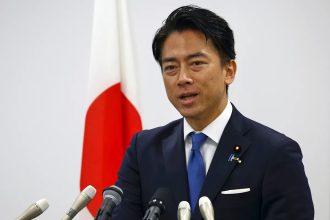A former Kaduna Central senator, Shehu Sani, has welcomed the move to allow prison inmates to participate in Nigeria’s next general elections, describing it as a positive step for the country’s democracy.
Reacting in a post via his official X handle on Friday, Sani said the move could translate into about 100,000 additional votes nationwide.
“Speaking from experience as an ex-prisoner, I know that the long-term serving inmates and the ‘Cell Governors’ and their Exco will control the votes,” he stated.
According to the former lawmaker, the internal hierarchy and order of command within prison facilities are strong and not for the faint-hearted.
Despite this, Sani commended the reform, noting that granting prisoners the right to vote was a welcome development in promoting inclusivity and justice.
“The order of command inside the prison cell is not for the weak. Overall,the reform that gives the prisoners the right to vote is commendable,” he added.
Sani’s comments after the Independent National Electoral Commission and the Nigerian Correctional Service partnered to secure voting rights for inmates in the nation’s prisons.
During a courtesy visit by the Controller General of the NCoS, Sylvester Nwakuche, to the commission’s headquarters in Abuja on Friday, INEC Chairman Prof. Mahmood Yakubu acknowledged the rising demand for extending voting rights to inmates in correctional facilities across the country.
The central focus of the meeting was the voting rights of inmates, most of whom are on remand and awaiting trial.
Yakubu acknowledged that inmates in several other countries, including Ghana, Kenya, and South Africa, are permitted to vote, and noted that Nigerian courts have also ruled in favour of this right.
“We are aware that the right to vote is a human right which cannot be taken away from a citizen on account of time being served in a correctional facility.
“In many parts of the world, including some African countries such as Ghana, Kenya and South Africa where our officials observed elections, inmates exercised the right to vote,” the chairman stated.
He cited two landmark rulings from the Federal High Court in Benin (2014) and the Court of Appeal (2018), which upheld the rights of inmates awaiting trial to vote.
However, he clarified that the courts emphasised voting as a voluntary act that must be asserted, not a mandatory duty.
“The commission is aware of the judgements of the Federal High Court in Benin delivered on 16th December 2014 and the Court of Appeal, also in Benin, delivered on 7th December 2018 pertaining to the right to vote by five plaintiffs awaiting trial.
“Based on the combined provisions of Article 25 of the International Convention on Civil and Political Rights (1966) and Section 25 of the Constitution of the Federal Republic of Nigeria 1999 (as amended) on citizenship, the court affirmed the rights of plaintiffs who were inmates awaiting trial to vote in elections.
“However, the judges ruled that the right to vote is only excisable when asserted as it is a choice to be exercised voluntarily by a citizen and not a duty to be imposed by force of authority,” Yakubu explained.









